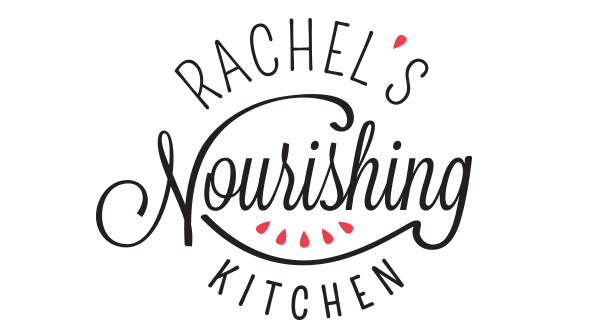It’s that time of year again…cold and flu season.
It’s funny how the flu is the only illness that gets a whole season named after it, isn’t it?
What changes this time of year that increases our susceptibility to getting sick? Are colds and the flu inevitable, or can they be prevented?

As someone who used to come down with bronchitis, sore throats, and sinus congestion multiple times a year, I know how inconvenient and uncomfortable being sick is. Over the past few years, the changes I’ve made to my lifestyle and diet boosted my immune system, so I rarely got sick and felt better than ever. Even my husband, an elementary school phys ed teacher, who is exposed to countless sick kids every day, stays well, too.
I can usually get through this time of year without getting sick, but this winter has been a tough one for me. I got sick – sore throat, feeling totally run down, and a bit feverish. Not the full-blown flu, but I felt pretty crappy. I am the worst patient and hate being sick! But my body was sending me a message that I wasn’t taking care of it, so I got run down as a result.
Looking back, I can attribute my weakened immune system to NOT doing all of the things I’ve outlined below on a consistent basis. When I’m following these steps, I don’t get sick. My immune system is strong and fights for me.
So, what are the secrets of those who stay well? What if we could naturally boost our immune system, so we could thrive through instead of simply survive this time of year? Can we do more to protect ourselves than solely relying on the flu shot and a bottle of hand sanitizer? Not that there’s any harm in getting a bottle of Hand Sanitizer Canada ready for when the sickness hits, but most of the medications we take just suppress symptoms but don’t get to the root of why we’re sick. They also interfere with our body’s natural healing process. And we all know washing our hands is certainly important, but…
We can do better.
Here are six tried and true steps you can take to supercharge your immune system and stay well in the winter.
1) Catch Some Zs
Lack of sleep (usually staying up to late) is the #1 trigger for me to get sick.
Though not the most glamorous piece of guidance, getting adequate, quality sleep is one of the best things we can do to boost our immune system. Our body uses sleep as a time to rest, repair and restore itself, so when we shortchange ourselves, we compromise our body’s ability to fight back. Sleep disturbances not only reduce our immune response but have also been linked to increased susceptibly to the common cold. One of the best things we can do if we start to feel like we’re coming down with something is to prioritize sleep and get a few extra hours of shut-eye. However, some people find that using immune system supplements could help boost their immunity so they can get over their cold or flu. That being said, some people can find it difficult to swallow supplements when they come in tablet or pill forms. Fortunately, there are now liquid vitamins and supplements which provide an alternative way to boost your immune system. You can learn more about liquid vitamins and supplements @ https://tropicaloasis.com/.
Since millions of people have trouble sleeping, try one of these tips to better sleep:
- Check out The Sleep Doctor, Dr. Michael Breus’s book, The Power of When, to understand how to optimize your daily activities and sleep based on what he calls your “chronotype.” Click this link to take a quick quiz to identify YOUR chronotype.
- Set your phone to Night Shift to reduce exposure to stimulating blue light. If you have an iPhone, go into Settings — Display & Brightness — Night Shift. I have mine set to turn on at sunset and turn off at sunrise.
- Take a warm bubble bath or lavender epsom salt bath. Taking a bath before bed raises our core body temperature. Stepping out of the bath drops our temperature, which stimulates the release of sleep-promoting compounds. The magnesium in the epsom salts have a calming, anti-anxiety effect, too.
- Set your room temperature to 65F. You know how hard it is to sleep in a room that is too warm. A cooler temperature promotes better sleep.
- Use the Calm app to find a soothing meditation or relaxing adult bedtime story to prepare you for rest.
2) Begin with the Gut

They might look like Cheetos, but these puffy tubes are actually bacteria. Did you know that bacteria cells outnumber human cells 10:1? That’s right. We’re mostly bacteria.
Because 70-80% of our immune cells are located in and around our digestive system, one of the first places we should focus on to boost our immunity is our “gut.” The bacteria in our gut play a crucial role in the development and maintenance of our immune system and our Western diet, rich in processed packaged foods, and the overutilization of antibiotics has been linked to gut dysfunction and imbalances in our gut bacteria.
Increasing our consumption of prebiotics and probiotics is one way we can boost our digestive health and, therefore, our overall health. Prebiotics are fermentable fibers that feed probiotic bacteria. Sources of prebiotic foods include buckwheat, chicory, burdock root, onions, garlic, asparagus, green tea, and blueberries, to name a few. We also want to increase consumption of traditional probiotic-rich foods like miso, natto, kimchi, sauerkraut, and kefir to promote a healthy gut.
Another option is to take a probiotic supplement. If you do, make sure you go with one that is high quality and proven effective. This review of the top probiotic supplements should help you.
3) Supplement with Vitamin D3
Vitamin D is a powerful immune system regulator. Some experts even suggest that the collective reduction in sun strength and exposure (one of our primary sources of vitamin D) this time of year is what sets most of us up for reduced immunity. Deficiencies in vitamin D have been linked to increased susceptibility to infection, colds and the flu, and many Americans are deficient in this immune-boosting nutrient.
The best form to take is vitamin D3. Most supplements are D2, so make sure you check and get D3. Recommendations vary, although the Vitamin D Council suggests 1,000 IUs (international units) for children and 5,000 IUs for adults daily. Vitacost is a great resource for supplements, including D3.

See your doctor to have your vitamin D level checked. It should be at least 30 ng/ml and closer to 50 ng/ml or more for optimal health and cancer prevention. Vitamin D is a fat-soluble vitamin, so it should be consumed with some source of fat for optimal absorption. Check out the chart below from the Vitamin D council. Live in Colorado and want to get your vitamin levels checked? Click to see Family Medicine csu health center hours and get a check-up booked in today.
4) Eat Your G-BOMBS
Chronic stress depletes our body of nutrients, so upgrading our nutrition to support our body is especially critical during this time. All of us have heard about the importance of having a colorful diet, but this catchy acronym from Dr. Joel Fuhrman puts a new spin on that age-old advice.
G-BOMBS stands for Greens, Beans, Onions, Mushrooms, Berries and Seeds. I’ve written in more detail about them here. These nutrient-dense foods are packed with anti-inflammatory phytochemicals, antioxidants, vitamins, and minerals that work together to supercharge our immune system. Leafy greens like kale, spinach, Swiss chard and cruciferous vegetables like broccoli, cabbage and cauliflower have antiviral and immune-boosting properties.
Compounds from onions and other members of the allium vegetable family, like garlic, leeks, shallots and scallions thin mucus and have been found to have anti-asthmatic and antibiotic effects. Beans are rich in prebiotic fiber that helps feed the good bacteria in our digestive system. I eat beans almost every day. Believe it or not, mushrooms are also a significant immune booster and have strong antiviral and antibacterial properties. For more about the power of mushrooms, check out the TEDTalk below.
Whether you enjoy them in salads, smoothies, soups, stews, stocks, steamed or sautéed, eat your G-BOMBS to boost your immunity. Most recipes on this blog are packed full of G-BOMBS. Here are a few GBOMBS-rich soup recipes.
5) Chill Out
This time of year is characterized by heightened levels of stress from travel, holiday shopping, reduced exercise, increases in consumption of alcohol and sugar-laden foods, family get-togethers, time management, and, for many, holiday blues and depression. Do what you can to increase your resiliency to stressors because stress significantly suppresses our immune function.
If you want to thrive through the winter, make time for relaxation and fun, whether it takes the form of meditation, yoga, massage, a mani/pedi, dancing, taking a day off from work, a soothing epsom salt bath or calling a friend, going on a date, playing a game, or spending time in nature, even if it is chilly outside.
You can also just watch this video and search “laughing babies” on YouTube for instant stress relief!
6) Move Moderately
As the weather gets colder, we tend to spend more time indoors and less time moving. Moderate exercise may have a protective effect on the immune system, while excessive exercise and overtraining can depress our immune response.

I love this infographic from Precision Nutrition that gives all the details on exercising when you’re sick.
If you feel like you’re coming down with something, mild to moderate movement is the way to go. Try a dance class like tai chi, yoga, dancing, Nia,or go for a brisk walk, jog or indoor swim. My favorite place to take classes like this in Baltimore is Movement Lab.
So, there you have it! If you want to stay well this winter, thrive instead of survive, and feel the best you’ve ever felt, follow these tips to supercharge your immune system.
Is there anything I’m missing? Any tips you swear by that help you stay well? I’d love to hear from you in the comments below!


